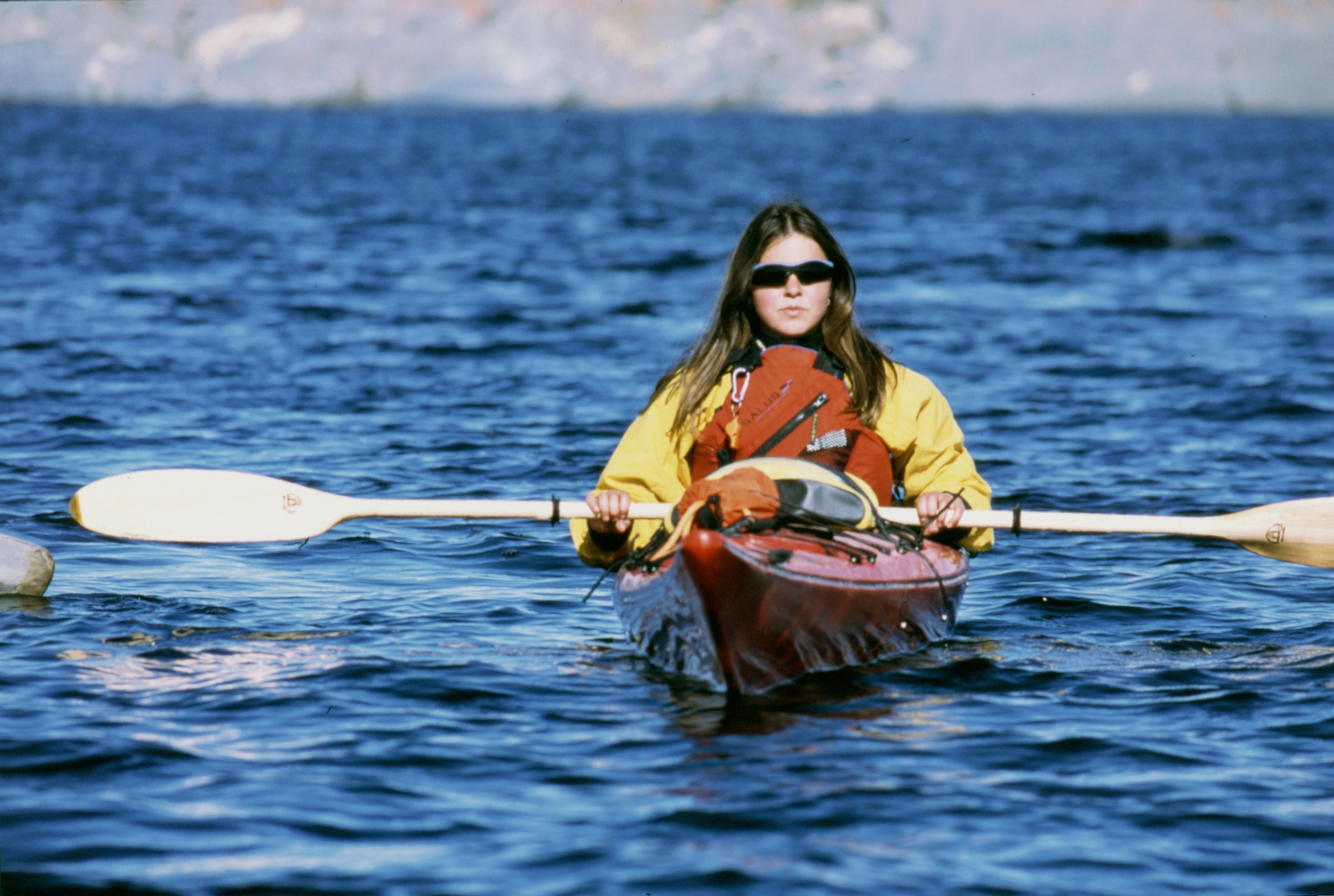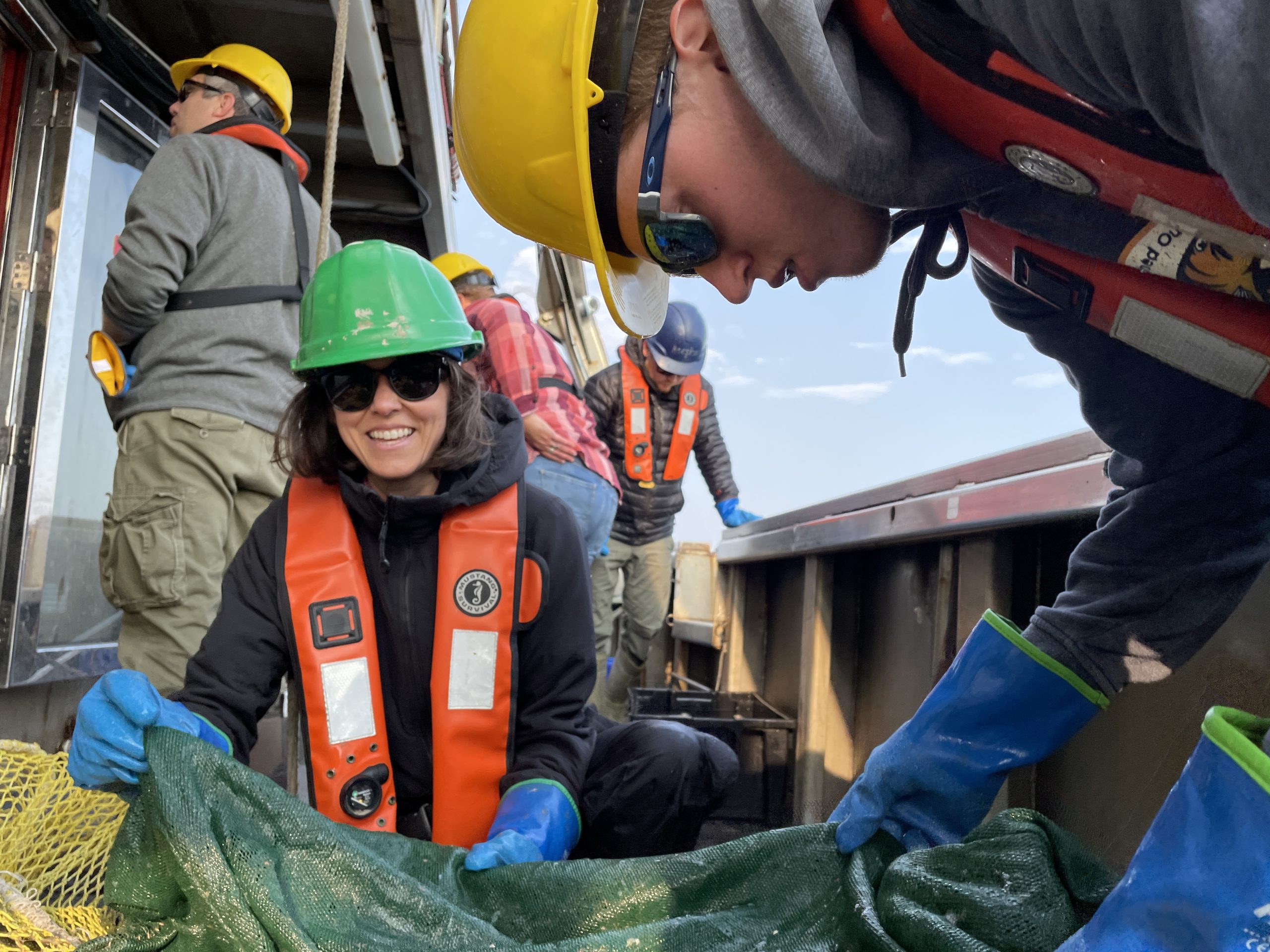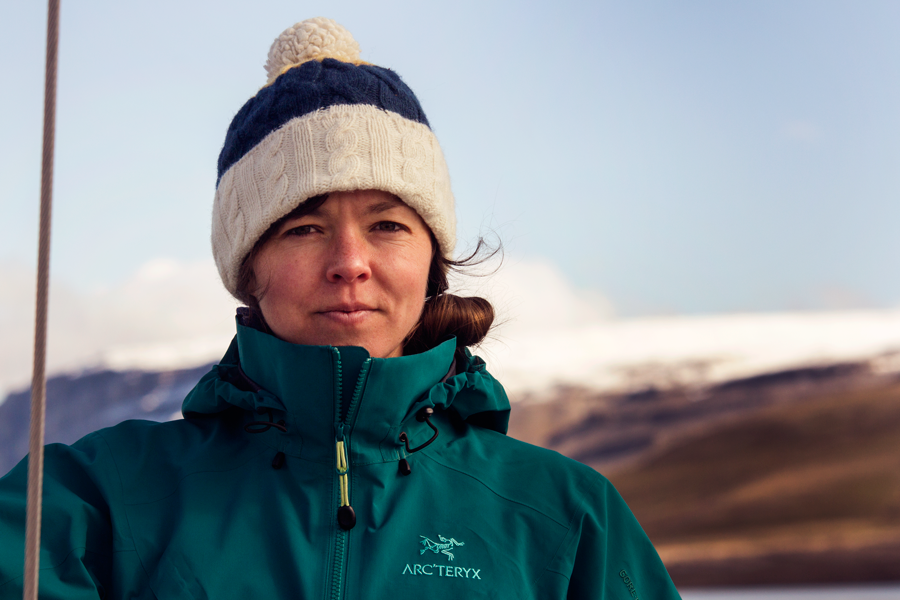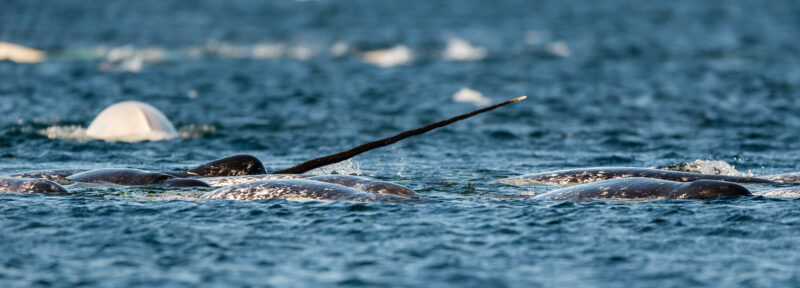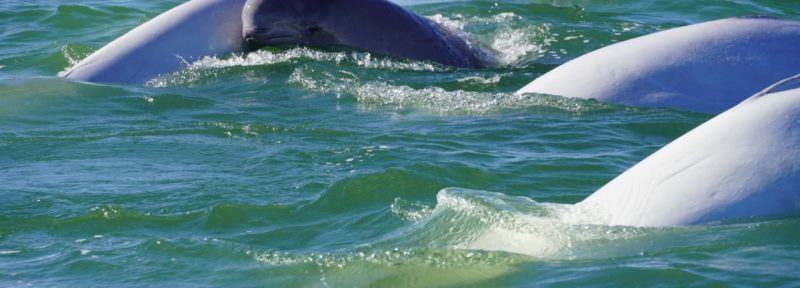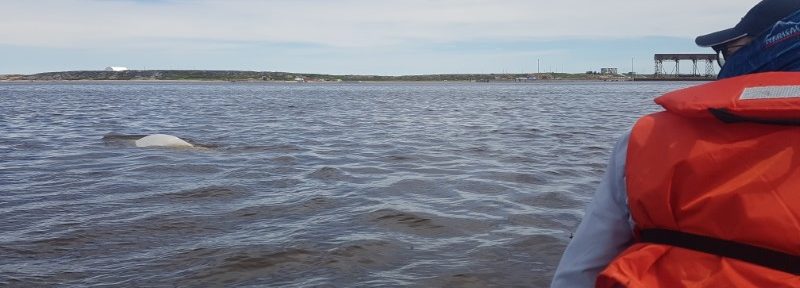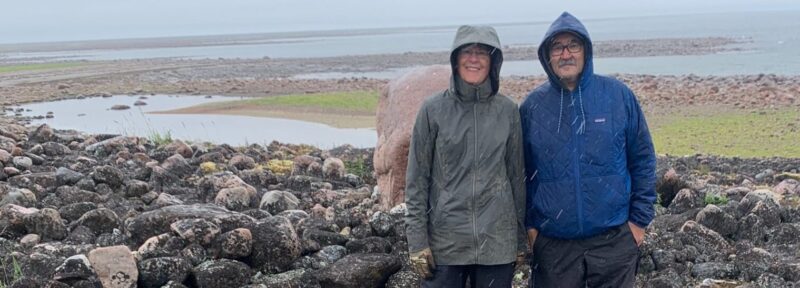Meet the Team Q & A: Kristin Westdal, Science Director
Kristin Westdal guides a beluga tour in the Churchill River estuary in 2002.
Credit: Gilles Pucheu
Welcome to the first in a series of Q & As with our staff to help you get to know us better. Kristin Westdal is Science Director for Oceans North and is a marine mammal expert. She has conducted extensive research about belugas, narwhal and killer whales in Canada’s eastern Arctic and earned her PhD in science from the University of Manitoba.
Q: How long have you worked for Oceans North and what does your job entail?
I joined Oceans North in 2010, which means I’ve been on staff for 12 years. As science director, I oversee all of our research, look for connections between issues and develop partnerships outside the organization to support our work.
There’s no such thing as a typical day because my work is constantly changing. I could be analyzing data or writing a research paper or meeting with a hunters and trappers organization (HTO). I used to spend weeks in the field, but now it’s more like twice a year for a week each time.
Q: Describe your job in three words.
Collaboration, research and creativity.
Q: What do you like most about your job? What are the biggest challenges?
It takes a lot of creativity to develop research programs, and I like that I have the leeway to do that in my job. For example, in 2014, we started the acoustic monitoring program in Eclipse Sound because the community of Mittimatalik (Pond Inlet) was concerned about the impacts of vessels (from Baffinland’s iron ore mine at Mary River) on marine life. To develop the research, we had to ask: What is the problem? How can we monitor marine mammals to assess the impact? And that led us to begin the acoustic monitoring with two small hydrophones and a partnership with the hunters and trappers organization. When we realized we needed better equipment and more expertise to analyze the data, we collaborated with Scripps Institution of Oceanography.
The biggest challenge for me in this work is how long it takes to do research and analyze the results. I want things to move faster because we’re always looking for those answers yesterday!
Kristin Westdal cleans the fishing net during a fish survey in Hudson Bay in August 2022.
Credit: Trevor Gill, Build Films
I have two kids under five, a daughter and a son, so when I’m not working I like to go hiking with them in the forest or go to the beach. We live on a mountain and can walk out our back door and hike. This winter, we plan to go skiing with them every weekend. The ski hills are so close!
Q: Where’s home?
I live in North Vancouver. I grew up in Winnipeg but we moved here a few years ago for my husband’s business. We love being able to be outside all year round with the kids (it isn’t minus 30 degrees in the winter like in Winnipeg) and close to the ocean and the mountains. This was the best decision we ever made!
Q: What is something surprising about you?
I started a kayak guiding business (to take tourists to see belugas) in Churchill, Manitoba when I was 21 years old and in university. I ran that until 2006 when I started my master’s degree in environmental science. My kayak business is what led me to the work I do now because I discovered that my real passion was finding out more about marine life.
Kristin Westdal on a sailing trip in Milne Inlet with students from Mittimatalik.
Credit: Chris Paetkau, Build Films
It’s easy to lose focus and excitement when research like acoustic monitoring takes years to do. But when I return to Mittimatalik and meet with the HTO, it’s the community members who give me inspiration. I remember, that’s why I’m doing this work. For the communities, hunting narwhal is part of a sustainable subsistence harvest, and it’s devastating when people say they can’t find food for their families or pass on cultural traditions. This is not an abstract question – it impacts people’s lives. If our research can help mitigate the problem, that’s worth doing.
Ruth Teichroeb is a regular contributor to Oceans North and former communications director. She is based in Seattle, Washington.

